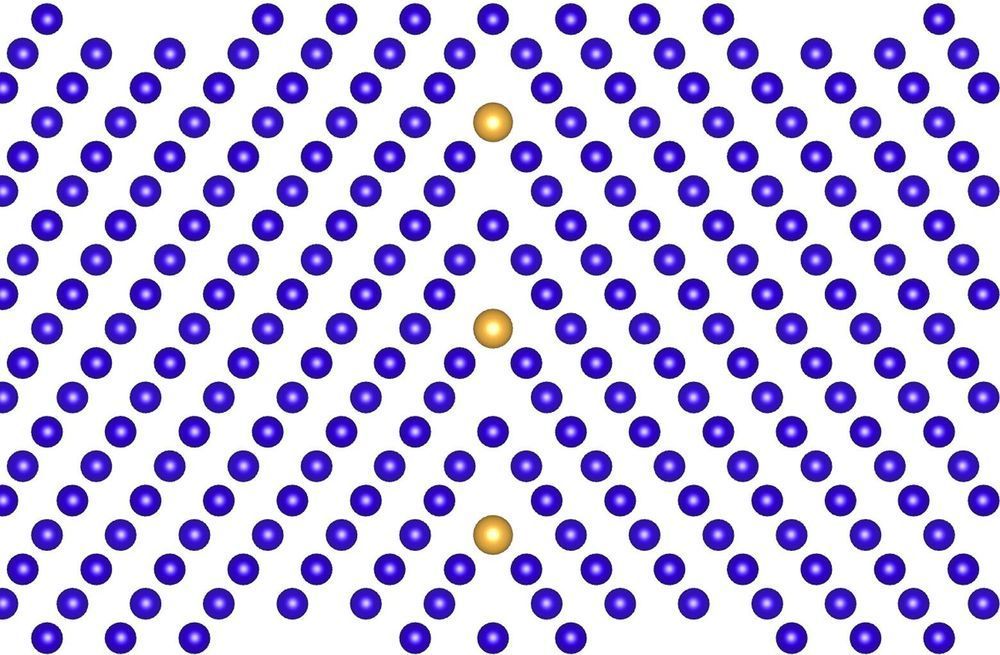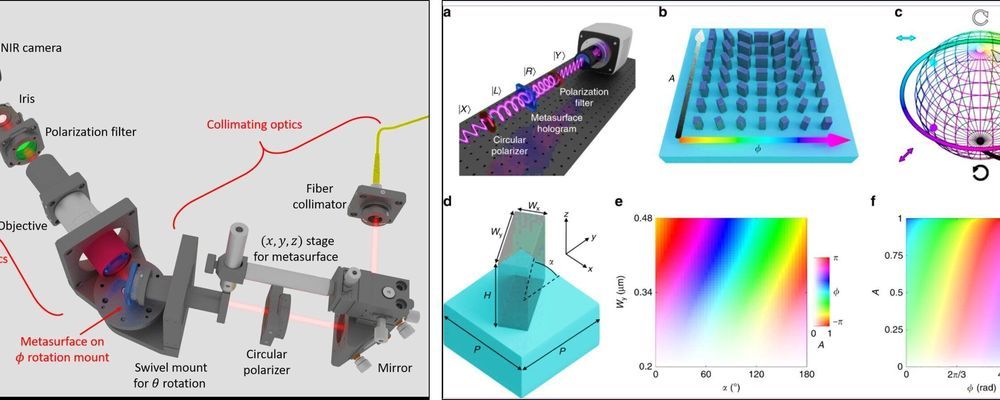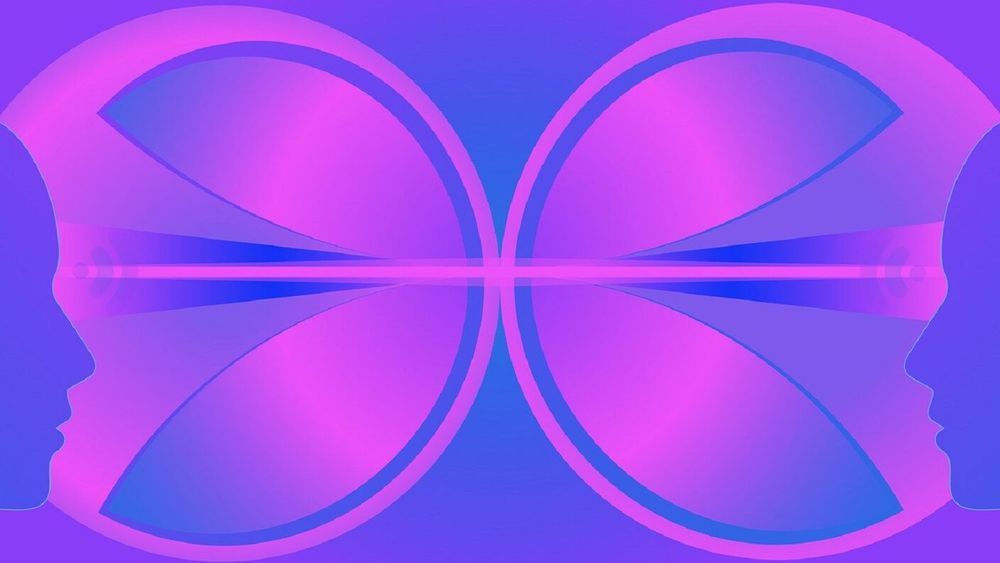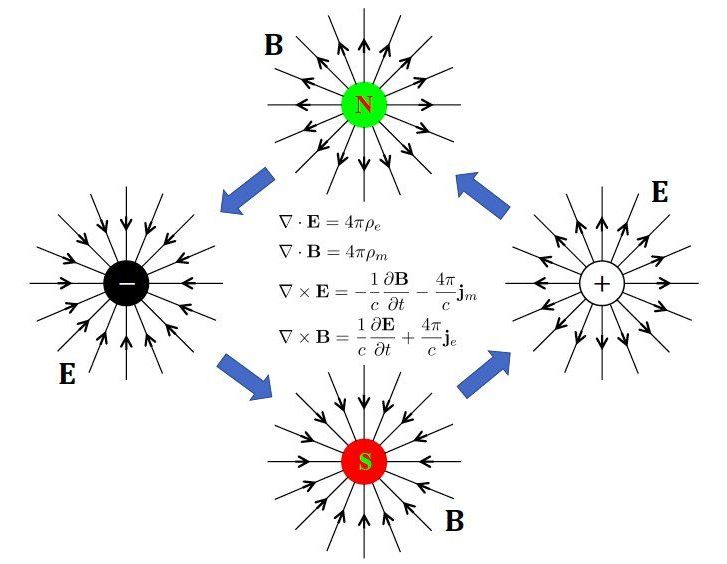Coastal cities such as India’s Mumbai, China’s Shanghai and Thailand’s Bangkok could be submerged in three decades.



A new way to calculate the interaction between a metal and its alloying material could speed the hunt for a new material that combines the hardness of ceramic with the resilience of metal.
The discovery, made by engineers at the University of Michigan, identifies two aspects of this interaction that can accurately predict how a particular alloy will behave—and with fewer demanding, from-scratch quantum mechanical calculations.
“Our findings may enable the use of machine learning algorithms for alloy design, potentially accelerating the search for better alloys that could be used in turbine engines and nuclear reactors,” said Liang Qi, assistant professor of materials science and engineering who led the research.

Metasurfaces are optically thin metamaterials that can control the wavefront of light completely, although they are primarily used to control the phase of light. In a new report, Adam C. Overvig and colleagues in the departments of Applied Physics and Applied Mathematics at the Columbia University and the Center for Functional Nanomaterials at the Brookhaven National Laboratory in New York, U.S., presented a novel study approach, now published on Light: Science & Applications. The simple concept used meta-atoms with a varying degree of form birefringence and angles of rotation to create high-efficiency dielectric metasurfaces with ability to control optical amplitude (maximum extent of a vibration) and phase at one or two frequencies. The work opened applications in computer-generated holography to faithfully reproduce the phase and amplitude of a target holographic scene without using iterative algorithms that are typically required during phase-only holography.
The team demonstrated all-dielectric metasurface holograms with independent and complete control of the amplitude and phase. They used two simultaneous optical frequencies to generate two-dimensional (2-D) and 3D holograms in the study. The phase-amplitude metasurfaces allowed additional features that could not be attained with phase-only holography. The features included artifact-free 2-D holograms, the ability to encode separate phase and amplitude profiles at the object plane and encode intensity profiles at the metasurface and object planes separately. Using the method, the scientists also controlled the surface textures of 3D holographic objects.
Light waves possess four key properties including amplitude, phase, polarization and optical impedance. Materials scientists use metamaterials or “metasurfaces” to tune these properties at specific frequencies with subwavelength, spatial resolution. Researchers can also engineer individual structures or “meta-atoms” to facilitate a variety of optical functionalities. Device functionality is presently limited by the ability to control and integrate all four properties of light independently in the lab. Setbacks include challenges of developing individual meta-atoms with varying responses at a desired frequency with a single fabrication protocol. Research studies previously used metallic scatterers due to their strong light-matter interactions to eliminate inherent optical losses relative to metals while using lossless dielectric platforms for high-efficiency phase control—the single most important property for wavefront control.



A few years ago, popular YouTuber Life Noggin published a video titled “WHY DO WE DIE?” In this video, he briefly goes into the science behind the gradual cellular degradation of the biological substrate, which causes all known side-effects associated with aging. At the end of the video, however, he revealed that he’d much rather “live forever” than die.
As a result, his subscribers, which is nearly at 2.9 million, took to the comments section to overwhelmingly declare similar hopes. Not everyone was convinced, however.
As we continue searching for the cure to aging, we’ll need to better inform the public that we’ve no intention of dictating how long they’re to live and when they’re to die.

Here’s something you don’t hear every day: two theories of consciousness are about to face off in the scientific fight of the century.
Backed by top neuroscientist theorists of today, including Christof Koch, head of the formidable Allen Institute for Brain Research in Seattle, Washington, the fight hopes to put two rival ideas of consciousness to the test in a $20 million project. Briefly, volunteers will have their brain activity scanned while performing a series of cleverly-designed tasks targeted to suss out the brain’s physical origin of conscious thought. The first phase was launched this week at the Society for Neuroscience annual conference in Chicago, a brainy extravaganza that draws over 20,000 neuroscientists each year.
Both sides agree to make the fight as fair as possible: they’ll collaborate on the task design, pre-register their predictions on public ledgers, and if the data supports only one idea, the other acknowledges defeat.


Researchers at the Kavli Institute for the Physics and Mathematics of the Universe (WPI) and Tohoku University in Japan have recently identified an anomaly in the electromagnetic duality of Maxwell Theory. This anomaly, outlined in a paper published in Physical Review Letters, could play an important role in the consistency of string theory.
The recent study is a collaboration between Yuji Tachikawa and Kazuya Yonekura, two string theorists, and Chang-Tse Hsieh, a condensed matter theorist. Although the study started off as an investigation into string theory, it also has implications for other areas of physics.
In current physics theory, classical electromagnetism is described by Maxwell’s equations, which were first introduced by physicist James Clerk Maxwell around 1865. Objects governed by these equations include electric and magnetic fields, electrically charged particles (e.g., electrons and protons), and magnetic monopoles (i.e. hypothetical particles carrying single magnetic poles).
In what is believed to be a transit industry first in the United States, TriMet’s all-electric buses will be powered by 100 percent wind energy. TriMet and project partner Portland General Electric made the historic announcement on Tuesday, April 16, 2019. As Oregon’s largest transit provider, TriMet has committed to a non-diesel bus fleet by 2040. The initial journey toward a non-diesel fleet now begins with battery-electric buses that will be powered by PGE’s Clean Wind℠ renewable energy program.
“Today, we are riding the winds of change. TriMet’s commitment to a zero-emissions bus fleet by 2040 and support of wind power put the agency and our region at the forefront of a cleaner future.”
“We are proud to support TriMet’s work to electrify transportation across our region. Powered by wind, this all-electric bus line is a sustainable transportation option for the community and another step closer to a clean energy future for Oregon.”